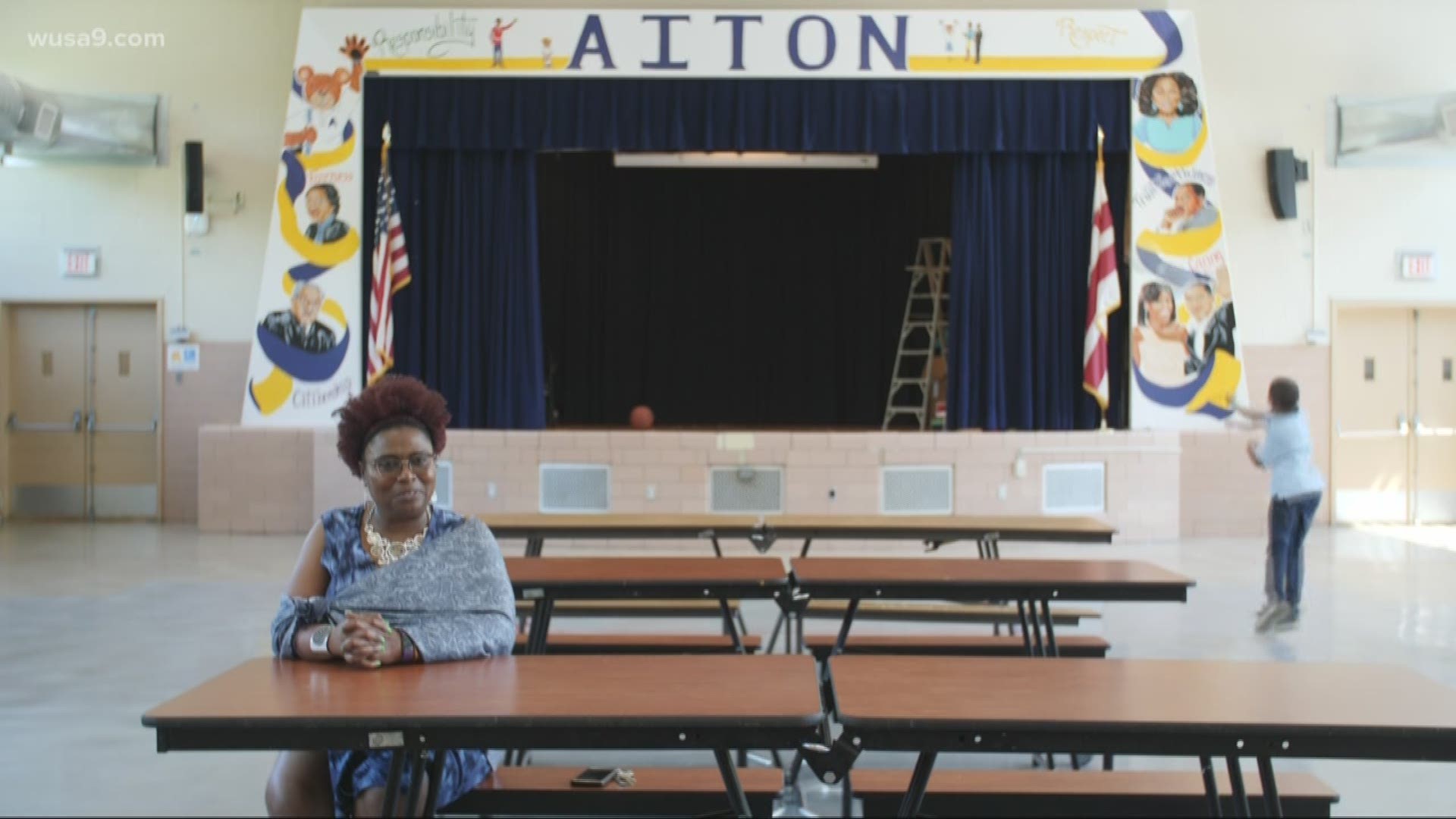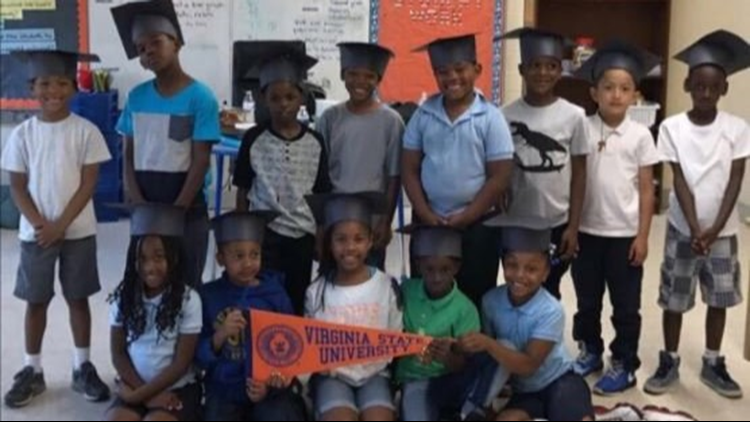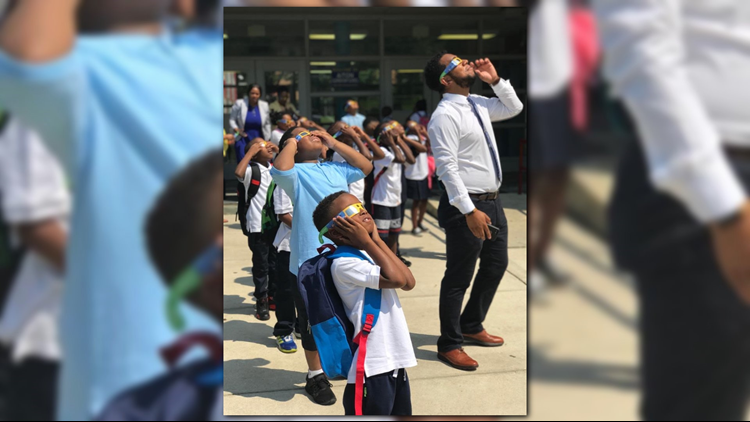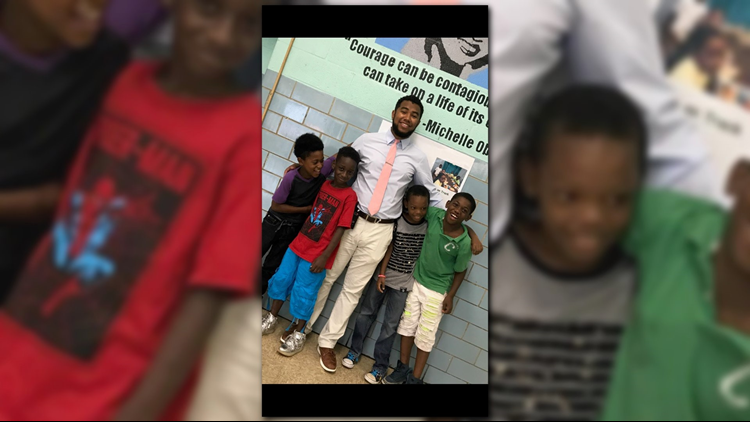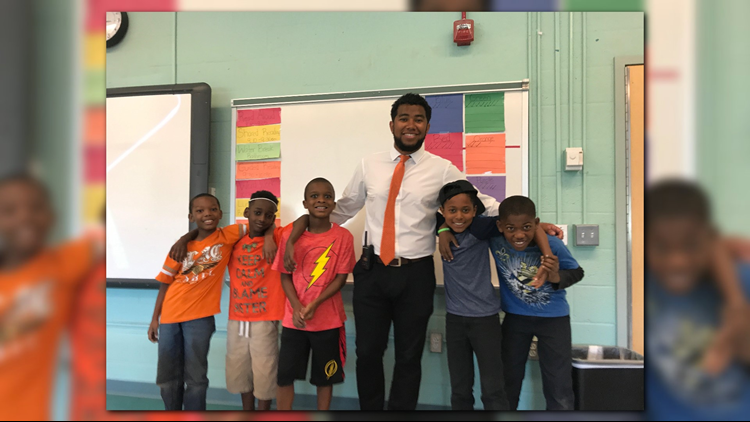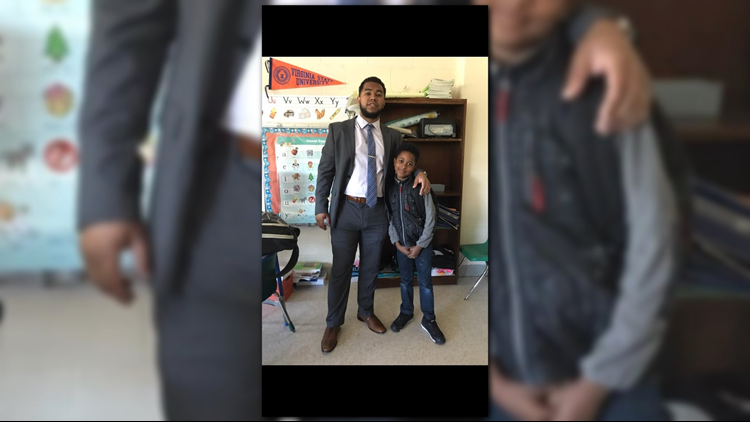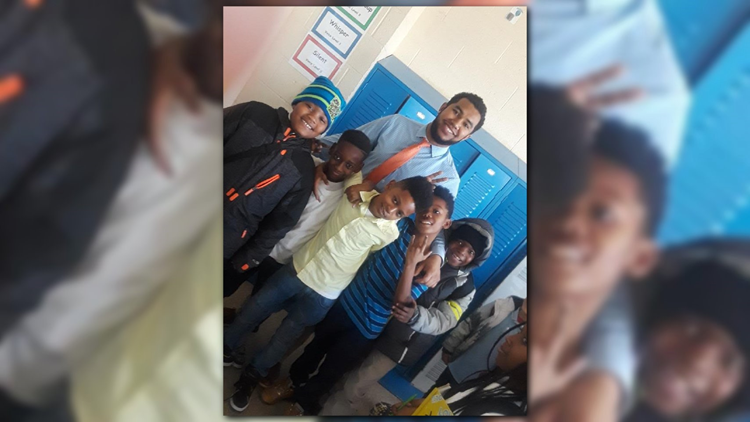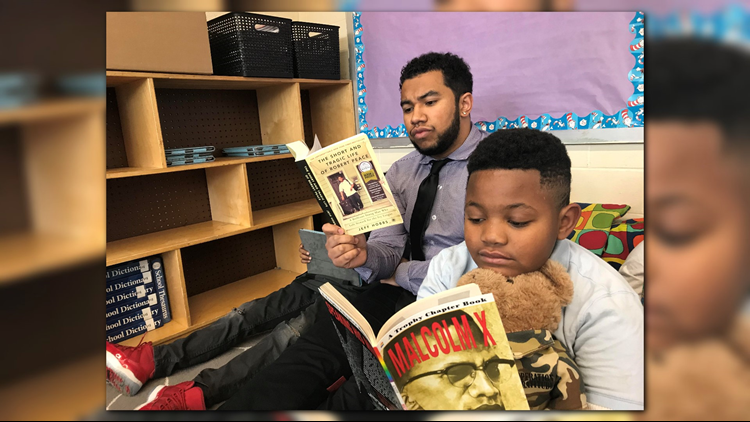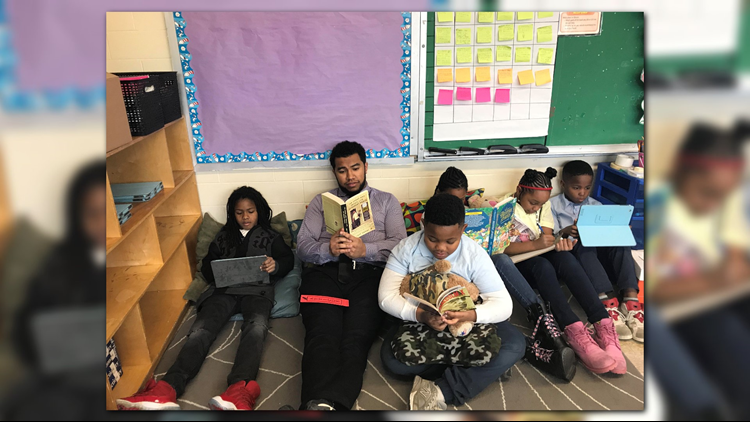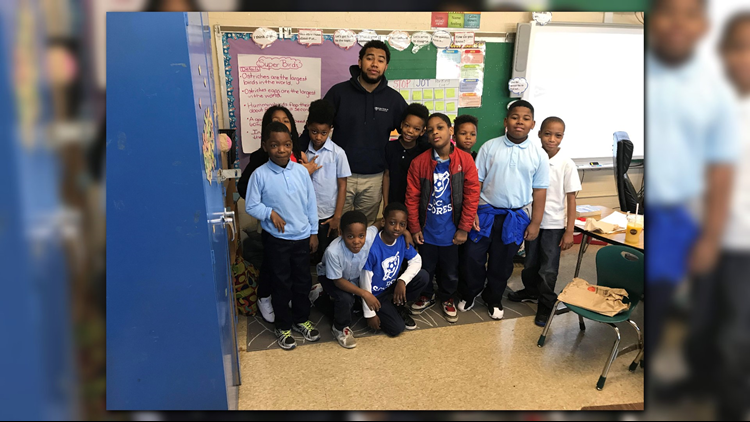WASHINGTON -- Every day, Roxanne Brummell drives about 90 minutes to Ward 7 where she is a fifth-grade teacher at Aiton Elementary School.
She’s worked there for five years and passes through two other school districts to get there, but everyday she chooses Aiton.
"I rise at 4 in the morning and start my commute between 5:30 a.m. to 5:45 a.m.," Brummell said. She lives in White Plains, Md. That's just a little more than 30 miles away from Aiton. She has been a teacher with D.C. public schools for 15 years.
RELATED: 'No principal lasts here' -- What it's like to work at a school with the worst turnover rate in DC
"I love my kids," Brummell said. "I want to be in a place where I’m making the most impact, positive impact in students' lives. I want to be in a place where I can look and say, 'Look at you. You are the rose that grew from concrete.'"
But Brummell is the exception, a study from the D.C. Board of Education shows about 55 percent of teachers at D.C. public schools leave the system over five years. At Aiton, nearly half the teachers leave on a three-year average.
Brummell does whatever she can to help her students succeed, including giving customized homework to each student, so she can hold them accountable.
"Not everyone's home environment is conducive to doing all of this homework stuff," Brummell said. "The elite probably have their homework space, their desk and I've been to homes... I don’t want to put pressure on them. Some kids don’t even have someone to help with their homework."
There are nearly 300 students at Aiton. More than 80 percent of the students are also considered "at-risk," which is why it is important for teachers build long-lasting relationships with them.
"It brings me to the point where I want to cry because working with kids that are already at a deficit and a teacher walks out on them," Brummel said.
The study found nearly 20 percent of D.C. Public School teachers leave each year. In addition to that, most D.C. schools do not keep the same principal for more than five years.
"I’m literally that stat line," former teacher Phillip Copeland said. "I think the beginning of this year was the greatest I ever felt to start the year. A hundred kids were the most I've had in my class, but I feel like every class was on it 100 percent."
Still halfway through the school year, Copeland, 30, left Cesar Chavez Charter School.
"I still feel bad because you recognize the impact you have in the classroom and the relationships you build," Copeland said. "Like these are people you miss the kids. The students never have been the issue and they’re always the greatest part of the job. It's just everything else piled, piled, piled on your shoulders."
Copeland said there is too much focus on testing and not enough focus on doing what’s right for the students.
"I think there's such a focus on, 'We have to get these PARCC scores up, we have to have math, reading' [that] everything else gets pushed away," Copeland said.
The Partnership for Assessment of Readiness for College and Careers, or PARCC, is the District of Columbia's annual assessment of mathematics and English language arts (ELA), based on the Common Core State Standards (CCSS).
Teachers said they are leaving for reasons like lack of leadership opportunities and mentors and the teacher evaluation system. The evaluation is called IMPACT.
In 2009, DCPS reinvented the its evaluation system to put a focus on putting growth first -- improvement initiatives -- and to give teachers feedback using the following methods: instructional practices, student achievement and collaboration.
Check page 16 on this report to see what your school's teacher retention rate is.
According to the study, teacher departures in DCPS is largely correlated with their IMPACT rating.
"Almost all of the teachers rated 'ineffective' and a little-over half of teacher rates as 'minimally effective' leave DCPS, compared with 10 percent of teachers rated 'highly effective,'" the study reads.
D.C. Public Schools is committed to ensuring the most effective teachers are supporting our students. We are proud to have some of the highest paid teachers in the country. We are also proud that we have retained 93 percent of our high-performing teachers and 87 percent of all teachers at DCPS. We will continue to focus on recruiting the best educators for our students, retaining them where they will have the most impact, and supporting their professional development through unique leadership and growth opportunities, according to a statement from DCPS.
"The expectations are a little higher in schools like this, so you have to rise to the occasion," Aiton principal Malaika Golden said. "We have a very rigorous evaluation system that determines whether you stay and that can be a lot."
Golden has been the principal for four years and she works hard to keep her teachers in the classroom.
"I think it’s my responsibility as a leader to make people feel valued and create opportunities for teachers to show their strengths, demonstrate their leadership abilities," Golden said.
But when success in the classroom, meant sacrificing at home, Copeland knew it was time for him to walk away.
"It does get to a point where it burns you out," Copeland said. "With me, I got to that point this year. One thing you hear as a black male educator is that they need to see more black male educators in the classroom. 'They need you here. We need you here. We need more black men.' But one thing you’re reminded of is my black son needs to see his black dad at home also."
Currently, Copeland has a 10-month fellowship with the D.C. Board of Education. He said he does plan to return to the classroom.
"I do want to get back in it, but it’s just a matter of finding that balance," Copeland said.
A teacher activist group called Empower Ed is working to find that balance to retain teachers.
"Relationships with administrators and lack of leadership roles inside of the school," said Scott Goldstein, the organization’s founder. "Those are two key levers we are trying to pull to make sure we retain teachers."
Goldstein was also a DCPS teacher who left the classroom.
DCPS said they have other programs that offer teachers leadership opportunities and professional development like Leadership Initiative For Teachers (LIFT) which gives teachers a chance to grow in the classroom.
Critics said those programs only scratch the surface of what is needed.
"My hope is that we are going to see the city leaders like the deputy mayor, etc. start to focus on those issues that build a more positive focus in our schools," Goldstein said.
"That’s how we are going to close the achievement gap and opportunity gap. Not by focusing on these narrow metrics or by trying to score one-year wins, but by doing the actual work it takes to make progress," he added.
Despite the obstacles and struggles teachers may face, Brummell knows what she has to protect the most is her students.
"So many people just come in and out of their lives and leave them, and I will always say to them, 'I'm not going no place. I'm here to stay,'" Brummell said.

